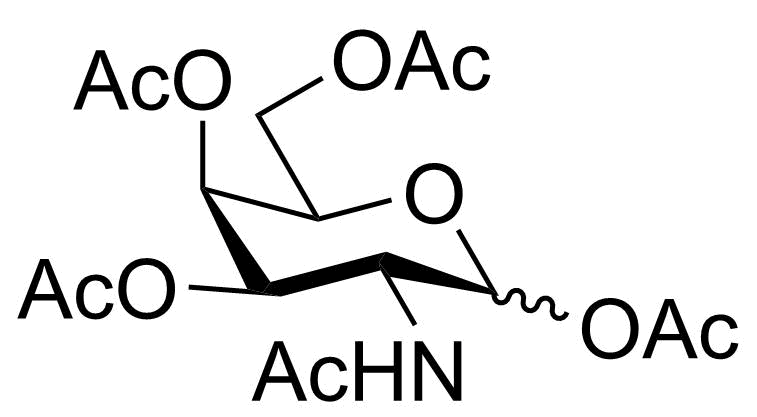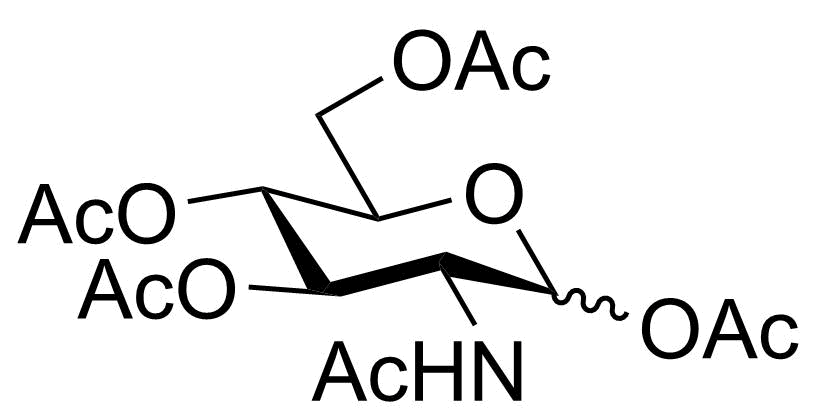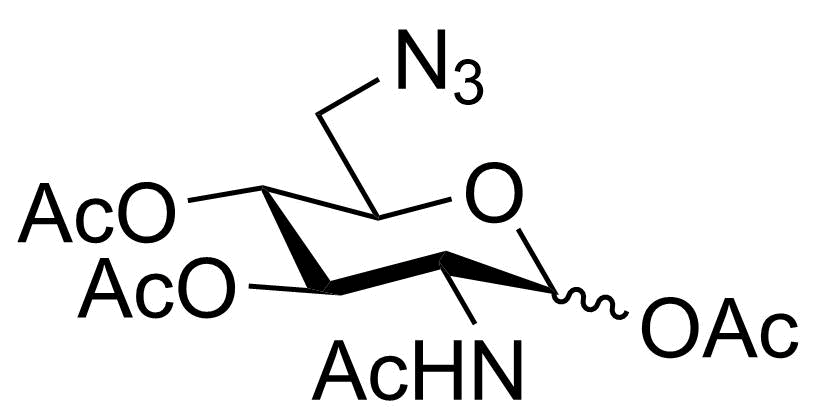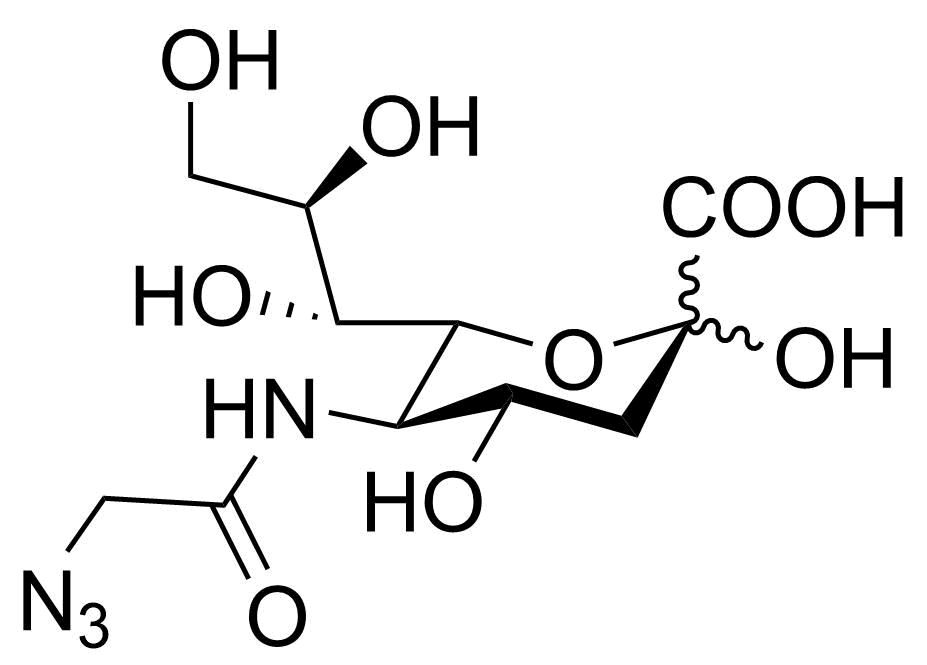(ax)HO-(exo)sTCO-COOEt (releasing)
Releasing strained trans-cyclooctene with an allylic alcohol and ethyl ester
| Product ID: | SV7249 |
|---|---|
| Synonyms: | (ax)HO-sTCO-COOEt, exo-RsTCO, exo-RsTCO-COOEt, releasing strained TCO, exo-(E)-BCN, HO-sTCO-COOEt, ethyl (1R,5S,8S,9R,E)-5-hydroxybicyclo[6.1.0]non-3-ene-9-carboxylate, bifunctionalized TCO |
| Tags: | alkene, axial, Bioorthogonal chemistry, caged TCOs, click chemistry, click-to-release, copper free click chemistry, exo, HO-sTCO-COOEt, sTCO, strained TCO, TCO, tetrazine, trans-cyclooctene |
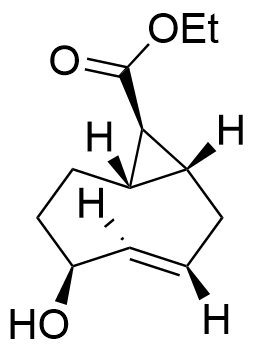
| Product | Price | Estimated Shipping Time | Purchase |
|---|---|---|---|
| (ax)HO-(exo)sTCO-COOEt (releasing) - 1 mg | €165.00 | 2-3 weeks | |
| (ax)HO-(exo)sTCO-COOEt (releasing) - 5 mg | €220.00 | 2-3 weeks | |
| (ax)HO-(exo)sTCO-COOEt (releasing) - 10 mg | €275.00 | 2-3 weeks | |
| (ax)HO-(exo)sTCO-COOEt (releasing) - 25 mg | €400.00 | 2-3 weeks |
Product information
-
Function
Strained Trans-Cyclooctene(TCO) – tetrazine click chemistry can be used for in vivo conjugation of two payloads with exceptionally fast reaction rates. The functional handle on the allylic position of the E-double bond can be charged with a payload that is released after conjugation with a tetrazine. In addition, this releasing-sTCO can selectively be functionalized due to the two orthogonal handles; a carboxylic group and a secondary alcohol group.
A click reaction can be employed for bioconjugations, immobilization, in vivo staining and/or in vivo fluorescent labeling in combination with payload release (e.g. drug delivery).
-
Mode of action
The reaction of tetrazines with trans-cyclooctenes (TCOs) covalently binds the two molecules without interfering with the endogenous processes in living systems.1 The reactions of TCOs with tetrazines have exceptionally fast reaction rates of up to 3.300.000 M–1s–1 depending on the TCO structure.2 These properties make TCO click-chemistry a powerful tool for in vivo conjugations. Both the tetrazine and TCO can be charged with a payload (e.g. marker, antibodies, drugs) that can be joined in vivo.
The second order rate constants for this product (exo)-sTCO-OH-COOEt are shown in the figure below. These second-order rate constants for reaction of TCO with 1.0 eq dipyridyltetrazine and dimethyltetrazine were determined using UV/Vis spectroscopy at 540 nm (specific for tetrazine) in acetonitrile at 21 °C.3
The payload release is driven by tautomerization of the click-conjugate after the tetrazine reacted with the TCO. The moiety on the allylic position will eliminate after the tautomerization. Initial experiments showed almost complete release after a period ranging from 30 minutes to 24 hours depending on the payload, the tetrazine derivative and the solvent. Initial testing of the release was performed with pentafluorocarbonate on the allylic position of the TCO in d-chloroform. The TCO was reacted with dipyridyltetrazine and monitored by 19F-NMR. It showed almost complete release after 30 minutes.3
Alternatively, a non-releasing isomer of this product can be found on this page.
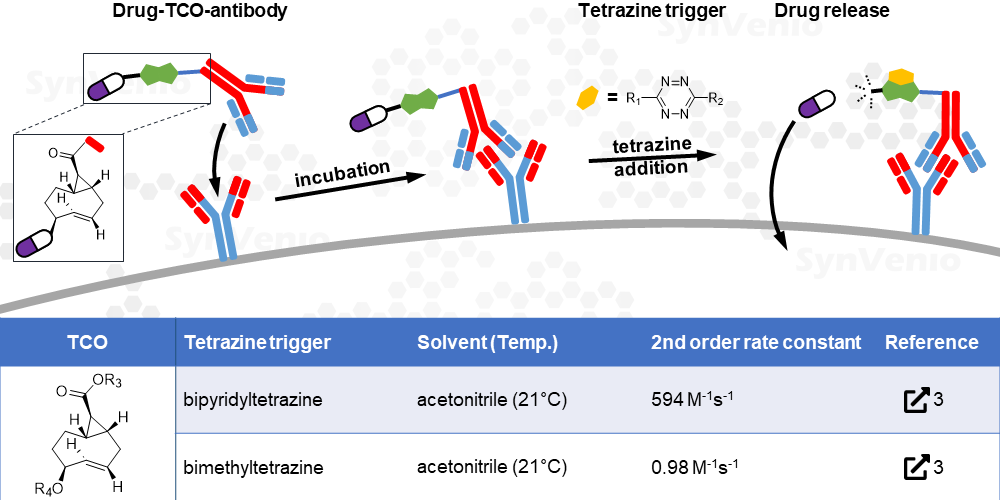
-
Applications
The application of trans-cyclooctene (TCO) based click chemistry varies from synthesis of nanomaterials to labeling and drug delivery strategies.45 The combination of TCO click chemistry with labeling dyes, radioactive isotopes, quantum dots or biomolecules such as proteins or nucleotides are already being explored.678910 In preclinical studies of Positron Emission Tomography (PET) imaging with in vivo pretargeting, antibody-drug conjugates (ADCs) were successfully used for site-specific delivery of a radioactive cargo in mice.1112
-
Handling
TCOs are sensitive to light. The product and reactions with the product should be shielded from light.
-
Biological Activity
TCOs have been used in cell cultures and mice for both imaging and therapy uses.131415
-
Chemical Information
CAS No.: n/a
SMILES: O[C@H]1CC[C@@]2([H])[C@@]([C@@H]2C(OCC)=O)([H])C/C([H])=C1/[H]
Chemical formula: C12H18O3
Molecular weight: 210.27
Purity: > 95%
Identity: 1H NMR & 13C NMR
Shipping temperature: 20°C
Storage temperature: -20°C
Recommended Products
| Name |
|---|
| P-GalNAc |
| BiotinAz |
| P-GlcNAc |
| P-GlcNAc6Az |
| Neu5NAz |
Calculator
Dissolve the required mass in your desired stock volume.
Dilute the required volume of your stock solution to the desired final volume.


